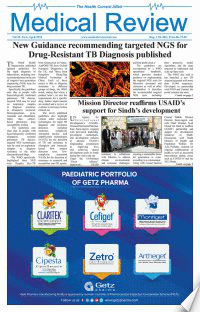The oral mammalian target of rapamycin inhibitor everolimus combined with the steroidal aromatase inhibitor exemestane significantly improves the overall response rate in postmenopausal women with advanced breast cancer, according to data released at the 37th Annual San Antonio Breast Cancer Symposium (SABCS).
Howard Burris, MD, Sarah Cannon Research Institute, Nashville, Tennessee, and colleagues elsewhere evaluated the secondary endpoints from the phase 3 Breast Cancer Trial of Oral Everolimus (BOLERO)-2. Secondary endpoints included the overall tumor response rate (complete response plus partial response) as well as the duration of the overall tumor response.
An earlier analysis showed that the median progression-free survival (PFS) more than doubled with everolimus plus exemestane compared with placebo plus exemestane in the study population of 724 postmenopausal women with hormone receptor-positive (HR+), human epidermal growth factor receptor-2-negative (HER2-) breast cancer whose disease recurred or progressed after nonsteroidal aromatase inhibitor therapy involving letrozole or anastrozole. The improvement in median PFS occurred without compromising patients’ quality of life.
As previously reported, patient baseline characteristics were well balanced between the treatment groups. Notably, a broad range of the HR+ advanced breast cancer disease spectrum was represented.
At the time of final PFS analyses at 18 months’ median follow-up, the objective response rate by local tumor assessment was significantly higher in the everolimus plus exemestane group than in the placebo plus exemestane group (12.6% versus 1.7%, respectively, by local assessment).
Of patients who had measurable disease at baseline, 71% in the everolimus plus exemestane arm had a decrease from baseline in the sum of the longest target lesion diameter compared with 30% in the placebo plus exemestane arm.
The present analysis also showed a longer median duration of overall response in patients treated with everolimus plus exemestane (10.5 months) compared with placebo plus exemestane (6.9 months). However, only four patients responded in the placebo plus exemestane group.
“The results support combining everolimus with exemestane to improve clinical outcomes in HR+, HER2- advanced breast cancer recurring/progressing on or after non-steroidal aromatase inhibitor therapy,” Dr. Burris said.


